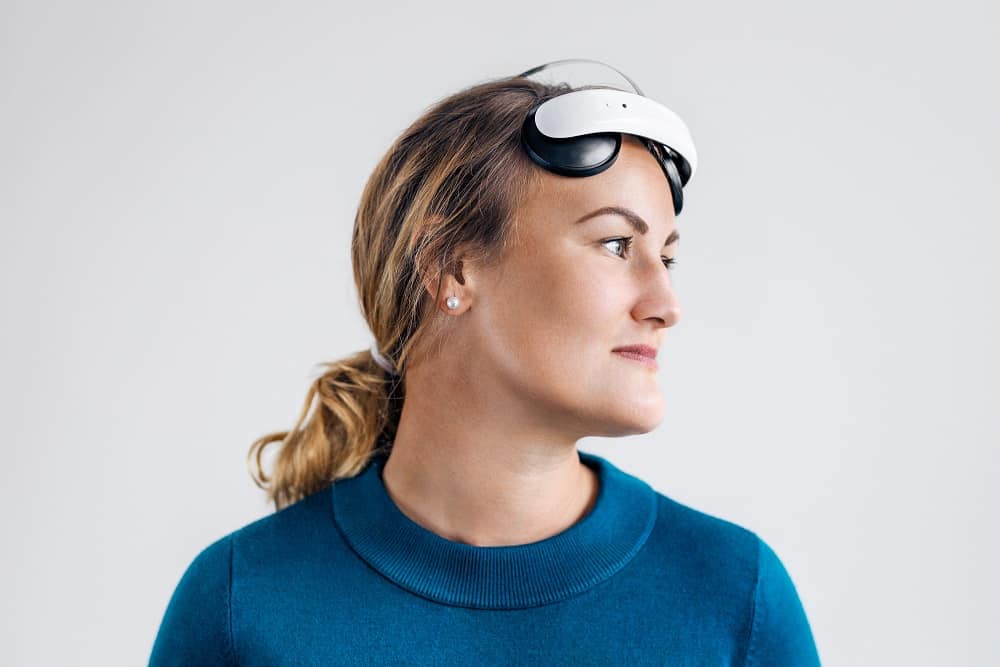First of its kind medication-free treatment for depression launches in the UK

Flow, a medical device company, has launched a medication-free treatment for depression comprising a brain stimulation headset and therapy app; it is the first approved treatment of its kind in Europe available to buy and use at home.
Randomised controlled trials, published in the New England Journal of Medicine and the British Journal of Psychiatry, showed that brain stimulation, of the type used in the Flow headset, had a similar impact to antidepressants but with fewer and less-severe side effects.
People diagnosed with depression often have a lower neural activity in their left frontal lobe, the part of the brain controlling important cognitive skills, including emotional expression.
According to the World Health Organization (WHO), over 300 million people of all ages and genders suffer from depression, and it is the leading cause of disability worldwide, affecting more women than men.
The Flow headset uses transcranial direct current stimulation (tDCS), a form of neurostimulation that delivers constant, low direct current via electrodes on the head to stimulate neurons in this area and help rebalance activity. The brain stimulation delivered in the Flow headset is technically and clinically equivalent to devices used in these randomised controlled trials.
“By combining tDCS with behavioural therapy, the Flow team has created a powerful medical device treatment. I have seen first-hand the possibilities this technique has in providing a treatment for unipolar depression without the several adverse effects associated with pharmacological therapies,” said Andre Russowsky Brunoni, Psychiatrist, Associate Professor at the University of São Paulo Medical School and Co-Author of the New England Journal of Medicine and British Journal of Psychiatry study.
In Europe, Flow is classified as a Class II medical device by the British Standards Institute, intended for use as a treatment for depression. Treatment typically lasts for 30 minutes per session, with 18 sessions over six weeks. Continued treatment is then possible for one to two sessions per week.
During brain stimulation, users engage with a virtual therapist via an app. This features videos and advice about depression, and how to reduce symptoms, using recent expert knowledge from the fields of sleep, nutrition, fitness and meditation.

Daniel Mansson, Co-Founder and CEO of Flow, commented: “We want to support the improvement of the current standard of care for people living with depression by increasing treatment choice and empowering patients to self-manage their symptoms at home with effective, non-pharmacological, alternatives.”
In addition, Flow is starting talks with the NHS to have its brain stimulation headset available on prescription.
People considering using Flow should have a diagnosis of depression and consult with their GP or healthcare professional beforehand. Individuals should not stop their current treatment for depression, stresses the company, but seek advice from their GP or healthcare professional before making any changes to their current treatment protocol.
The Flow headset retails at £399 and the Flow virtual therapy app, available on iOS, is free.
To find out more about Flow, the website is here
Founded in 2016, Flow is a medical device company based in Sweden. The company combines clinical psychology, neuroscience and innovative technology, including machine learning, and works with experts in the mental health field to create an interdisciplinary physical and behavioural treatment for depression.

